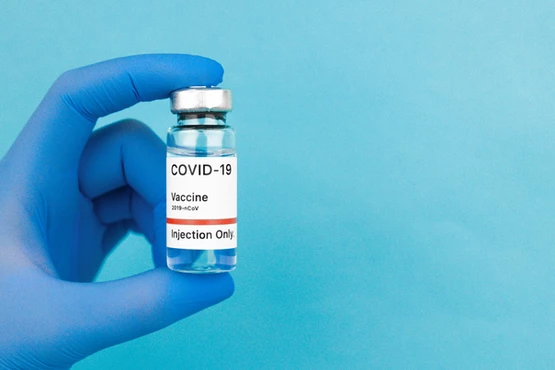COVID19 vaccines were developed rapidly and this is one of the reasons why people are hesitant to get one, but the science behind its development has been around for decades. Authorities assure us that all steps have been taken to ensure the COVID-19 vaccine’s efficacy and safety. According to the Center for Disease Control or CDC, the vaccines are not experimental. They went through all the stages of clinical trials. Extensive testing has shown that the COVID-19 vaccines are safe and effective.
Related: Covid-19 Myth Busters: Facts vs Fake News about the Coronavirus Disease
The COVID-19 vaccines have been used globally for more than a year now, but there are still questions about its effectiveness and safety. It’s important that we have these questions answered, but more importantly, we need to look only to legitimate sources for answers to these questions we may still have about vaccines.
Let’s discuss and answer some of these very important questions about the COVID-19 vaccines.
What are the benefits of getting a COVID-19 vaccine?
COVID-19 vaccines produce protection against the disease as a result of developing immunity to the SARS-COV-2 virus. These are the other benefits we could get from it:
- When immunity is developed through vaccination means that there is a reduced risk of developing the disease and its consequences.
- This immunity will fight the virus if exposed.
- Getting vaccinated with the COVID-19 vaccine offers to protect the people around you.
- If you are protected from getting infected by the disease, you are less likely to infect others.
This is more important to people who are at risk of getting severe COVID-19, such as healthcare workers, older or elderly adults, and other people with underlying medical conditions.
Related: Are You Immunocompromised? Here are 5 Ways to Boost Your Immune System
Should I get the COVID-19 vaccine even if I got infected?
You should still get the COVID-19 vaccine even if you got infected. According to the World Health Organization (WHO), you should still be vaccinated when it is offered to you. The protection somebody would have after being infected varies from person to person. The immunity you would get from being vaccinated after being naturally infected is very strong. Getting the vaccine even after having COVID-19 means you are more likely to have longer protection against the virus.
Should I get the COVID-19 vaccine while infected?
No. You cannot be vaccinated if you are currently sick with COVID-19. You should wait to be vaccinated after you have fully recovered. If you had exposure to COVID-19, you should not seek to be vaccinated until your quarantine is over to avoid spreading the virus to healthcare personnel.
Can a COVID-19 vaccine give me COVID-19?
No. This is one of the misconceptions around the vaccines that authorities are fighting against. None of the authorized COVID-19 vaccines from the US contain the live virus that causes COVID-19. This means that the vaccines cannot make you sick with COVID-19.
Likewise, the COVID-19 vaccines won’t cause a positive test result for a PCR or antigen test. Why? Because the tests check for active disease, not the immunity of a person. However, because the COVID-19 vaccine prompts an immune response, it may be possible to test positive in an antibody or serology test that measures COVID-19 immunity in a person.
The vaccines teach our immune system how to identify and fight the virus that causes COVID-19. This process can cause symptoms such as fever which is normal. These are signs that the body is building protection against the COVID-19 virus.
However, not having symptoms does not mean that that vaccine doesn’t work.
What are the COVID-19 vaccines side effects?
These side effects are normal signs that your body is building protection. These may affect your daily activities, but these symptoms should be gone in a few days. There are people who didn’t show any side effects.
The serious side effects that are reported to cause long-term health problems are extremely unlikely after getting the COVID-19 vaccines. Vaccine monitoring has shown that side effects generally happen within six weeks of receiving a dose. Because of this, the FDA required each of the authorized COVID-19 vaccines to be studied for at least 8 weeks after the last dose.
Some common side effects
On the arm:
- Pain
- Swelling
- Redness
You may feel the following throughout your body:
- Tiredness
- Headache
- Muscle Pain
- Chills
- Fever
- Nausea
Side effects after the second shot may be a bit more intense than what you had on your first shot. This is a normal sign that your body is building protection and should go away in a few days.
When to contact your doctor:
- The redness or tenderness where you have the shot gets worse after 24 hours.
- If the side effects do not seem to go away after a few days.
If you have a severe or allergic reaction after getting your first dose of an mRNA vaccine, you should not get a second dose of any other mRNA vaccine. Talk to your health provider and let them know about it.
Can the vaccine protect us from the COVID-19 variants?
Vaccines continue to lessen a person’s risk of contracting the COVID-19 , including variants. Vaccines are highly effective in protecting against severe illness. But let’s not forget that the Delta variant is highly infectious and transmissible than the earlier variants.
Who should not take the COVID-19 vaccine?
People who have a history of severe allergic reactions to any of the components of the vaccine should not take the COVID-19 vaccine. It is also not recommended for persons younger than 18 years old pending the results of studies.
Can pregnant women take the COVID-19 vaccines?
The vaccines are recommended for 18 years and older, including pregnant women, lactating mothers, or trying to get pregnant now, or might become pregnant in the future. Have a conversation with your doctor or healthcare provider about COVID-19 vaccination.
Related: 5 Common Questions about COVID-19
What are the COVID-19 vaccine brands currently available for me?
Here is a chart of all the COVID-19 vaccine brands available in the Philippines and their details.
How do I know if I’ve been fully vaccinated if I was vaccinated in another country?
If you have received all the recommended doses of a COVID-19 vaccine authorized by the Department of Health or are listed for emergency use by the World Health Organization, then you are fully vaccinated. This includes the following vaccines :
- Pfizer-BioNTech COVID-19 Vaccine – FDA-authorized, (labeled as COMIRNATY in European Union), 2 doses, for adolescents 12 -15 years old
- Pfizer-BioNTech (COMIRNATY) COVID-19 Vaccine – FDA-approved, 2 doses, for persons 16 years and older
- Moderna COVID-19 Vaccine – FDA-authorized, 2 doses, for persons 18 years and older
- Johnson and Johnson’s Janssen COVID-19 Vaccine – FDA-authorized, (labeled as Janssen-Cilag in European Union), 1 dose, for persons 18 years and older
- AstraZeneca COVID-19 Vaccine – WHO-listed, (labeled as COVISHIELD in Canada and others, labeled as AstraZeneca/SKBio in Republic of Korea), 2 doses, for persons 18 years and older
- Sinopharm BIBP COVID-19 Vaccine – WHO-listed, 2 doses, for persons 18 years and older
- Sinovac-CoronaVac COVID-19 Vaccine – WHO-listed, 2 doses, for persons 18 years and older
Accuracy is important in providing information about COVID-19 vaccines. Only look to reliable sources and legitimate websites for information about the vaccines. Misinformation is just as lethal as the virus itself.
The Chinese General Hospital and Medical Center is always here to provide guidance and support to our patients. Get vaccinated now and together we can help keep the numbers down and protect ourselves and our loved ones from getting sick. If you think you might be infected and need a swab test, please call our hotline at (02) 8711-4141 local 372/373/379 or send us an SMS / Viber message at +639955442347.
You might want to read:



